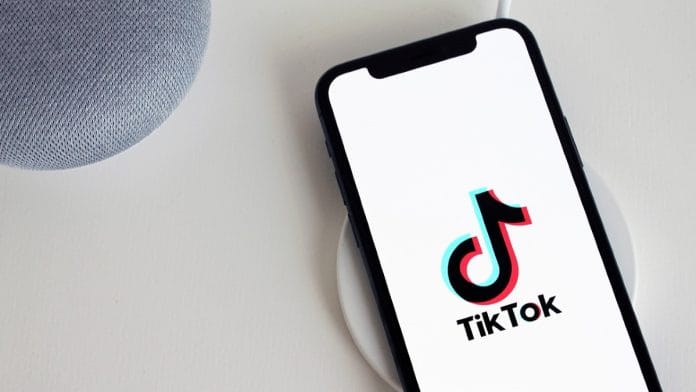New Delhi: About 170 million of its users in the US were cut off from TikTok as Apple and Google removed it from their app stores, just ahead of a federal US government ban on the social media platform taking effect. The ban was a result of a law passed by the US Senate last April which gave TikTok’s China-based parent company ByteDance time until January 2025 to either sell the platform’s US operations or face a full-fledged ban.
Beijing-headquartered ByteDance, which values itself at $300 billion, challenged the Protecting Americans from Foreign Adversary Controlled Applications Act in the US Supreme Court. The court while rejecting the challenge upheld the legislation.
ByteDance was founded in 2012 by Zhang Yiming and Liang Rubo, two college roommates at the Nankai University in Tianjin, China. In November 2018, it acquired the popular lip-syncing app Musical.ly for an estimated $1 billion. This led to TikTok’s global expansion and creation of a unified platform that gained popularity across the globe.
After the big merger, TikTok started gaining popularity in the US. Some of the most prominent TikTok creators include Charli D’Amelio, known for her viral dance videos; Addison Rae, a prominent dancer and influencer; and Lil Nas X, a performer whose track Old Town Road went viral on TikTok, elevating him as a global sensation.
TikTok users in the US were also dependent on the app for massive reach and engagement with its tendency to make them go viral. This helped influencers grow their business and gain brand partnerships that are usually paid commissions.
However, US politicians have over the years voiced concern over the possibility of the Chinese government accessing data of TikTok users, especially those in the United States.
Reacting to alarm raised by many on Capitol Hill, President Donald Trump first proposed banning the app in July 2020 citing national security risks but the plan did not materialise. Back then, Trump cited India’s example. India banned TikTok and 58 other Chinese apps in June 2020 over data security concerns in the wake of the Galwan Clash. The ban impacted over 200 million Indian users, TikTok’s largest market.
A little over six months before Trump suggested a ban, the Pentagon had recommended that all US military personnel delete the app from their personal and government-issued phones. This was preceded by a report by The Guardian which cited internal documents to demonstrate how TikTok instructed its moderators to muzzle content on topics considered sensitive by the Communist Party of China.
Under the Biden administration, these concerns continued to grow, leading to the enactment of the Foreign Adversary Controlled Applications Act in 2024. The legislation gave TikTok’s parent company nine months’ time to either sell the app or face a ban.
On Saturday night, as the ban came into effect, users in the US were unable to access TikTok or download the app from the Google or Apple play stores.
TikTok users in the US trying to open the app were routed to a popup which read: “A law banning TikTok has been enacted in the U.S. Unfortunately, that means you can’t use TikTok for now. We are fortunate that President Trump has indicated that he will work with us on a solution to reinstate TikTok once he takes office. Please stay tuned.” This was a reference to President-elect Donald Trump’s statement that he will “most likely” give the platform a 90-day extension once he takes office on 20 January,
“I think that would be, certainly, an option that we look at. The 90-day extension is something that will be most likely done, because it’s appropriate. You know, it’s appropriate. We have to look at it carefully. It’s a very big situation,” Trump told NBC News in an interview. “If I decide to do that, I’ll probably announce it on Monday,” he said.
While ByteDance continues to pin its hopes to the incoming Trump administration, if the ban continues it could provide a lift to other social media apps with TikTok-like features to succeed. These include Instagram reels, YouTube shorts and even Snapchat.
Meanwhile, TikTok reportedly informed its employees in the US that they will continue to have their jobs and that its offices will remain open even after the ban takes effect.
The US market represents a significant portion of TikTok’s user base, with approximately 170 million American users, accounting for approximately 11 percent of its total users. ByteDance is expected to lose a sizable chunk of its revenue as a result of the ban. Moreover, it might even amount to a hindrance to its plans for expansion in other countries.
With Trump set to take office for a second time on 20 January, there is also speculation over potential buyers for TikTok in the US. Trump has shown interest in finding a solution to reinstate TikTok, including the possibility of facilitating its sale to a US buyer. Reports in the American media too suggest that several companies have already begun showing interest in buying TikTok, but ByteDance has maintained that it does not plan to sell the app.
The Chinese government, meanwhile, was considering a plan that would have billionaire Elon Musk acquire TikTok’s US operations to keep the app from being effectively banned, according to a Bloomberg report.
(Edited by Amrtansh Arora)
Also Read: ‘We’re devastated, my wives cried’ — TikTok stars in Maharashtra village crushed by app ban






